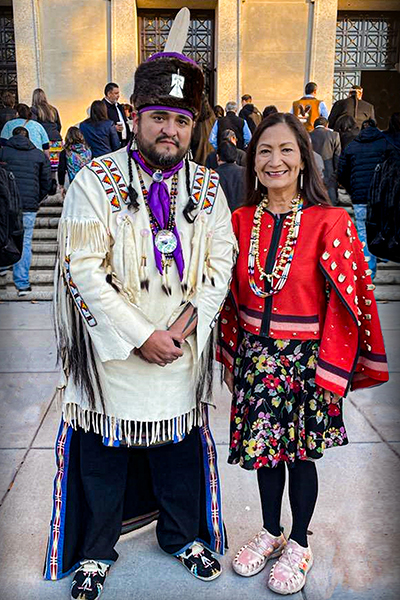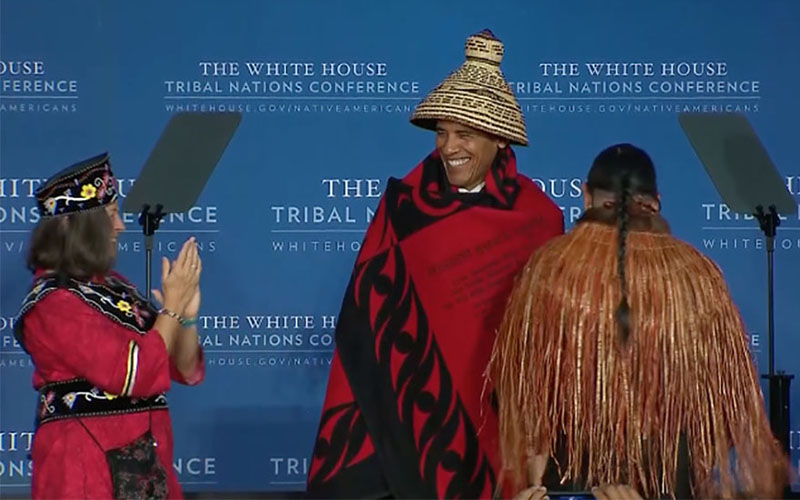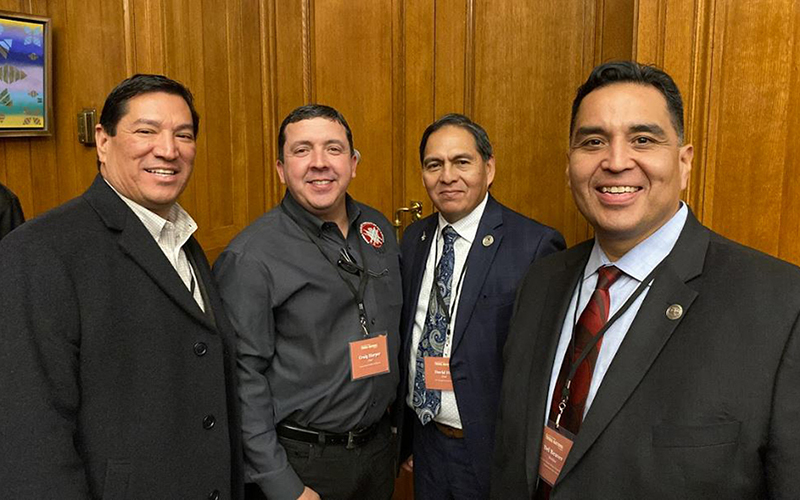WASHINGTON – For the first time in six years, leaders of federally recognized tribes from across the country gathered in Washington this week to meet with Biden administration officials in a gathering one Oklahoma leader called “extremely powerful.”
“When you’re sitting in that room, with representation of 574 tribal nations across the country. It’s … extremely powerful,” said Joseph Byrd, chairman of the Quapaw Tribe in northeastern Oklahoma.
“I would go ahead and say it’s a synergy, not an energy but a synergy in the room, of this commitment by the Biden-Harris administration. It can’t really be depicted through video,” Byrd said.
The White House Tribal Nations Summit was started in 2009 by then-President Barack Obama, bringing together tribal leaders with administration officials, Cabinet secretaries and the president himself annually until 2017, when the Trump administration stopped the event. President Joe Biden promised to revive it, but last year’s summit was virtual because of lingering COVID-19 concerns.
This year’s summit, held Wednesday and Thursday at the Interior Department, included panelists discussing topics such as mental health and health equity, economic development, tribal homeland initiatives and climate and clean energy.
Biden and Vice President Kamala Harris both spoke Wednesday and used the occasion to announce a raft of commitments to tribal nations, including new funding for the Indian Health Service, the relocation of 11 tribal communities that are at risk due to climate-related environmental threats, including coastal erosion, sea-level rise and extreme weather events.
“I made a commitment that my administration would prioritize and respect nation-to-nation relationships. And I’m going to make sure that happens,” Biden said. “That’s why I relaunched this convening and elevated an event into a White House Tribal Nations Summit.”

Quapaw Nation Chairman Joseph Byrd poses with U.S. Interior Secretary Deb Haaland at the White House Tribal Nations Summit. (Photo courtesy the Quapaw Nation)
Biden, who referred to the gathered tribal officials as “my fellow leaders,” also took the opportunity to announce plans to protect Avi Kwa Ame, a 450,000-acre site in southern Nevada also known as Spirit Mountain, that is sacred to tribes in the region.
“To have President Biden make an appearance for us, for me and Peoria that confirms that the Department of Interior, under Secretary (Deb) Haaland, that she has the support from this administration to do the things they promise,” said Craig Harper, chief of the Peoria Nation of Oklahoma.
“A lot of times our heart is in the right place, but without the support from different administrations, you know, it’s executed differently,” he said.
Harper said the fact that Haaland, the first Native American to serve as a Cabinet secretary, “put this call out to Indian Country, to the federally recognized tribes, that spoke volumes to me.”
In addition to meetings and speeches, tribal dance performances were scheduled both days of the event. That impressed Harper.
“Even in the midst of government, we still took time to remember culture. That means a lot to me. I believe that is from the lead of Secretary Haaland.” he said.
Reggie Wassana, governor of the Cheyenne and Arapaho Tribes of Oklahoma, said the Biden administration “has been more dedicated and open to the needs of tribal nations than any we’ve seen before.”
“Even the Department of Interior being run by a Native American female is a big and major step in helping the tribes solve a lot of their land issues, and a lot of their conservation issues,” he said.
But Wassana said the presence of Biden and Harris in particular meant a lot to the tribal leaders who attended.
“It’s not too often that the president and vice president of the United States will come to a tribal event and actually address the tribal nations,” he said. “It’s a historic thing when you have both heads of the government saying they are committed to the tribe’s efforts, it gives us a lot of energy.”
Byrd. who was attending his first tribal summit in Washington, said the experience of “collaboration … and the partnership through government-to-government relationships with all tribal nations, it’s quite an impactful experience for myself personally.”
He also said he expects to be taking some of the president’s words home with him.
“During President Biden’s speech, he said what we need is commitment, not compliance. And I love that. I wrote it down,” Byrd said. “The commitment, not the compliance… in Indian Country, and in Oklahoma, that speaks to us.”
– Gaylord News is a reporting project of the University of Oklahoma Gaylord College of Journalism and Mass Communication, which has partnered with Cronkite News to expand coverage of Indigenous communities.

